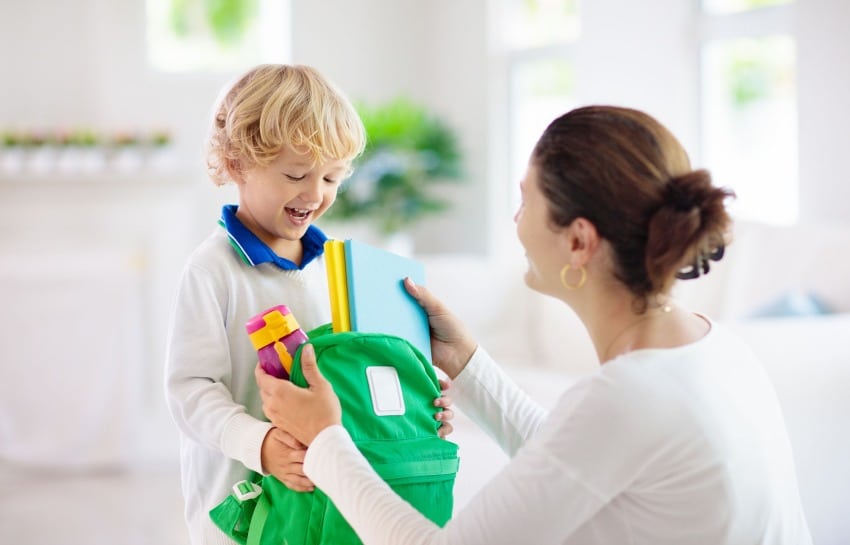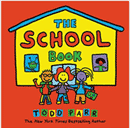10 Tips to Help Prepare Your Child for Kindergarten

“Is my child ready for kindergarten?” “What steps should I take to help them get ready?” — These are the most frequently asked questions asked by parents, especially as kindergarten registration nears for their little one.
Rest assured, as your child’s first and most important teacher, you are already doing things to help your child prepare for kindergarten. Your day-to-day interactions help provide a solid foundation for kindergarten.
The essential skills do not call for expensive programs, fancy materials, or elaborate equipment. They simply call for doing everyday things with your child in new ways. It is doing things with purpose! It is truly the small moments and everyday traditions that make the biggest difference. With intentionality, you can assist your child in developing key skills that will prepare them for a successful journey into kindergarten.
Here are some simple suggestions for helping your child prepare for kindergarten:
1. Support the development of independence.
Help your child develop independence by encouraging them to do things for themselves. Involve your child in deciding what to wear, what game to play, or what to eat. Of course, this does not mean your child has free rein; you provide options and let them choose. For example: “Would you like to wear your red shirt or your green shirt?” This simple act of making choices will help your child feel empowered.
2. Foster self-help skills.
From encouraging your child to help with chores, clean up their toys, or brush their teeth, you are helping them cultivate self-help skills. These self-help skills are essential for kindergarten readiness. Teaching your child to be self-sufficient is a gradual process, so meet your child where they are and help them enhance their skills.
3. Promote the development of attention and following directions.
The ability to focus and follow directions is a foundational kindergarten skill. You can assist your child in developing these skills by giving your child two-and three-step directions. For example: “Hazel, please put on your pajamas, brush your teeth, and pick a book to read.” Play Simon Says with two-or three-step directions. For example: “Simon says, ‘Jump up and down and shout hooray’.”
4. Encourage social skills.
Help your child realize and understand their own emotions —feeling sad, mad, glad, happy, or excited—and talk to them about what makes them feel that way. Provide your child with ideas on how to communicate those feelings with others.
Read books with your child about characters who are learning about their emotions and talk with your child about the characters’ actions to help build social awareness. Ask questions like, “How do you think the character felt?” “What did the character do to communicate how they were feeling?” and “What would you do in that situation?”
5. Support the development of language and reading readiness skills.
Language skills are foundational to your child’s success in school. You can support the development of language skills by reading to your child every day, engaging in conversations, and actively listening to your child.
Run your finger under the words as you read to your child. This helps your little one learn that words form from left to right and top to bottom.
Play games with rhyming words to help your child hear similar sounds in words. For example, as you are walking up the stairs, name one word that rhymes with cat for each step as you go up.
Find a New Horizon Academy Near You
6. Promote letter and sound recognition and writing.
Play with refrigerator alphabet magnets. Say both name and the sound that the letter makes.
Write in shaving cream in the bathtub, in salt or sugar in a cake pan, or in finger paint to make practicing more fun and multisensory.
7. Encourage number recognition and counting.
Count throughout the day. For example, count the crackers your child is eating for snack or count the socks as you take them out of the dryer.
Point out numbers you see in your environment and have your child name them. For example, ask your child to name the numbers found on food boxes or street signs.
Play games in which your child finds objects of particular colors and shapes around the house or in the neighborhood while you are driving in your car or on a walk. For example, “Jamal, point to something that is a red circle.”
8. Help your child develop fine motor skills.
Provide crayons, pencils, markers, and child-safe scissors. Then encourage your child to write, draw, create, and color.
Also, provide puzzles, lacing cards, and LEGOs. Playing with these types of toys help develop fine motor skills, too.
9. Nurture the development of gross motor skills.
Go for a walk, climb on the climber at your local park, play Hopscotch, and go on a bike ride. Those fun activities support the development of gross motor skills.
As you wait in line at the grocery store, encourage your child to stand on one foot like a flamingo, or hop on one foot, or walk heel to toe like they are on a balance beam. Take advantage of these everyday opportunities to help develop gross motor skills.
10. Cultivate cooperation and sharing skills.
There are simple ways you can help your child experience the rewards of cooperation and sharing. Playing games where you must take turns is a wonderful way to help your child learn to cooperate and share.
Let your child experience the benefits of cooperation by doing chores together. Whether it is setting the table or putting away their toys, point out the advantages of cooperating. For example, “Look how fast we cleaned up together. Now, we have time to read two books instead of one. Great teamwork.”
Setting up opportunities for playdates provides your child with an opportunity to practice their cooperation and sharing skills, too.
Bonus Tip:
Talk to your child about kindergarten. Read books about kindergarten. This will reduce some of your child’s anxiety, and yours, too.
Here are a few of my favorite books about kindergarten:
- The School Book by Todd Parr
- The Kissing Hand by Audrey Penn


The most important thing you can help your child develop in preparation for kindergarten, and for their whole life, is strong self-esteem. Good self-esteem doesn’t just happen to children – it grows as your child meets small challenges each day and receives positive feedback from you – even when he or she doesn’t succeed.
With your support, your child will be prepared for a successful journey into kindergarten.
For more great tips on kindergarten readiness, check out our Parenting Pickup Podcast’s Kindergarten Readiness episode.
Explore New Horizon Academy's Pre-kindergarten Program



